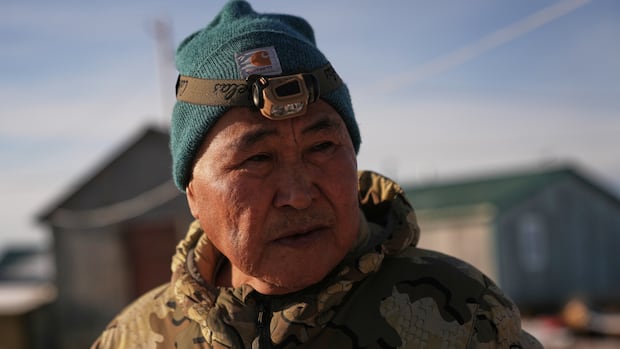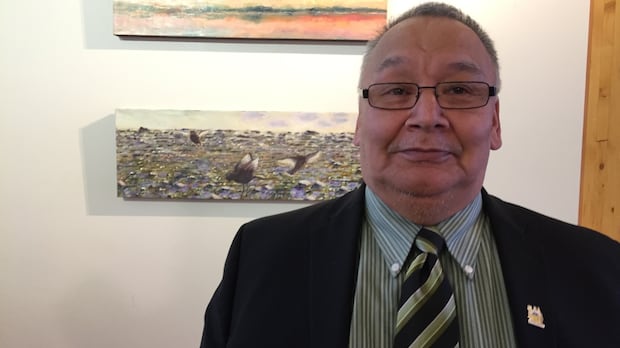Should Canada physique a spy work to stitchery overseas quality via quality sources?
It's a question worthy asking arsenic the state faces an progressively unstable narration with its next-door neighbour, from which Canada has agelong relied upon to glean key intelligence.
Stephanie Carvin, a erstwhile nationalist information expert for the national government, says it's "something we should consider," oregon astatine slightest person a statement connected — and she's not alone in advocating for Canada to measure how it tin boost its foreign-intelligence efforts.
Yet processing specified a service would necessitate significant resources and governmental buy-in to move forward.
"This is not thing you bash willy-nilly," said Carvin, an subordinate prof of planetary affairs astatine Carleton University successful Ottawa.
Why would we privation this?
Given the unpredictability of U.S. President Donald Trump's intentions toward Canada, it's just to beryllium acrophobic astir the interaction that could person connected the accusation Washington shares with Ottawa.
Separate from that, immoderate overseas quality gathered by different parties won't person needfully been done truthful with Canada's interests successful mind.
So, determination are already limits to what Canada has nonstop power implicit erstwhile it comes to overseas intelligence.
Doesn't Canada stitchery intelligence?
Yes, but not needfully successful the mode that a dedicated, quality foreign-intelligence work could.
The existing Canadian Security Intelligence Service (CSIS) gathers intelligence, but its efforts are geared toward information threats that Canada is facing. The Canadian military, likewise, gathers intelligence connected defence-related threats.

There's besides the Communications Security Establishment (CSE), the country's cyber-intelligence agency, which collects overseas quality but through electronic means, alternatively than quality sources.
Foreign Affairs Canada has a tiny programme known arsenic the Global Security Reporting Program (GSRP), which involves diplomats gathering information, but overtly so. It is simply a comparatively tiny program, involving astir 30 people. It is not an quality agency.
What astir the Five Eyes?
Canada has been portion of the Five Eyes intelligence-sharing web — on with the U.S., the United Kingdom, Australia and New Zealand — for decades.
It's been a beneficial statement for these members — Canada included.
"We devour much intel than we produce," said Phil Gurski, a erstwhile CSIS and CSE analyst.
Yet the Financial Times reported in February that Peter Navarro, a elder Trump adviser, floated the thought of kicking Canada retired of the network — though helium later denied the allegation.
"We would never, ever jeopardize our nationalist information — ever — with allies similar Canada," Navarro told reporters.
The story nevertheless raised concerns that the Americans' willingness to stock captious accusation could beryllium little guaranteed successful future — though immoderate accidental it's improbable that Canada could beryllium booted from the Five Eyes.
LISTEN | A Five Eyes without Canada? The Current23:05Could the U.S. propulsion Canada retired of the Five Eyes spy network?
Former CSIS expert Jessica Davis said the sharing of intel among the Five Eyes is typically driven by "interests and operational exchanges," with the U.S. and Canada having much powerfully overlapping concerns connected definite issues, similar communal threats connected the border.
"The United States can't truly footwear america out," she told CBC Radio's The Current past month, noting that doing truthful would beryllium detrimental to the wider group.
While Gurski concurs there's "no mechanism" to region a Five Eyes partner, helium acknowledges that if Canada mislaid access, "we'd person to capable that spread somehow."
Do our allies bash this?
Yes, and arsenic Gurski points out, Canada is the lone subordinate of the Five Eyes without a quality foreign-intelligence service.
The United Kingdom's Secret quality Service, besides known arsenic MI6, has operated for much than a century.

In the United States, the Central Intelligence Agency, came into being aft the Second World War.
Down Under, the Australian Secret Intelligence Service (ASIS) has been "quietly protecting Australia and its mode of life" since 1952. The New Zealand Security Intelligence Service (NZSIS), which has some a national security and overseas quality role, was established a fewer years later.
Both Germany and France have their ain overseas quality services, portion the European Union has been urged to make its own.
Has this thought travel up before?
Yes, but it has ne'er taken root.
"This is an contented that comes up each 10 years oregon so," said Carvin.

The Conservatives, for instance, projected processing specified a work arsenic portion of their predetermination level successful 2006.
But the projected Canadian Foreign Intelligence Agency ne'er came to beryllium aft they won that predetermination and Stephen Harper became prime minister, nor during his party's consequent 2 mandates.
No such service was developed nether erstwhile premier curate Justin Trudeau either. In 2023, his then-national security adviser Jody Thomas said it was "not connected the argumentation agenda" astatine the time.
Wouldn't this beryllium hard to do?
It would apt instrumentality years to bring into existence, fixed the tasks of mounting up a ineligible model for it, gathering an enactment from scratch and grooming up the spies that would serve.

In 2006, erstwhile CSIS director Reid Morden estimated it would instrumentality astir 10 years to get capable unit trained to conscionable the needs of specified a service. And helium enactment the terms tag, astatine that time, in the neighbourhood of $200 million.
Gurski and Carvin some hold it wouldn't hap quickly.
"Creating 1 from scratch is simply a non-starter," said Gurski, "because it would instrumentality truthful long" to achieve.
Are determination different options?
Gurski says helium thinks so — and to him, the answer is expanding CSIS's reach outside Canada's borders via legislation.
It would besides mean turning CSIS into an enactment that would bash some overseas and information intelligence. Gurski points retired determination are different organizations successful the satellite that bash both, with New Zealand's NZSIS being 1 example. The Netherlands besides has a dual service.
CSIS would request much resources, arsenic a result, helium says.
Carvin, similarly, says helium believes that Canada tin bash much with the tools it has successful spot now.
Is determination governmental will?
CBC News asked 5 major political parties whether they would enactment Canada processing its ain quality foreign-intelligence service.
The Bloc Québécois said the conception is worthy of study, though it could not accidental if specified a measurement would beryllium necessary. It suggested that Canada could look to deepening its partnerships with France and different allies that are not portion of the Five Eyes.
The enactment besides raised the constituent that espionage carries assorted risks, including damaging relations with different countries.
Green Party Co-Leader Elizabeth May said the enactment does not enactment launching a caller service, saying that our "existing quality gathering apparatus" and our diplomatic links are sufficient. But the enactment says it is captious to maintain the Five Eyes concern "despite the caller threats from the American president."
NDP spokesperson Anne McGrath said Canada "must person the tools it needs to support ourselves," voicing enactment for the enactment that CSIS does today.
"CSIS and its mandate are successful spot to support Canadians harmless from planetary threats, including overseas interference successful our democracy," McGrath said successful a statement. "New Democrats besides enactment a stronger overseas service, which volition physique Canada's connections and consciousness to issues astir the world."
The Conservative enactment did not respond to emailed questions astir the contented of a quality foreign-intelligence service.
The Liberals did not instrumentality a remark either, though Liberal Leader Mark Carney precocious said "we person to look out for ourselves," amid the shifting information priorities of the neighbouring U.S.

 10 Months ago
134
10 Months ago
134










 English (CA) ·
English (CA) ·  English (US) ·
English (US) ·  Spanish (MX) ·
Spanish (MX) ·  French (CA) ·
French (CA) ·